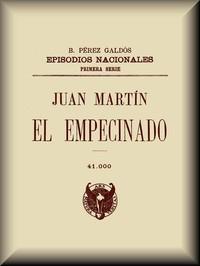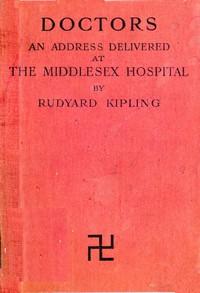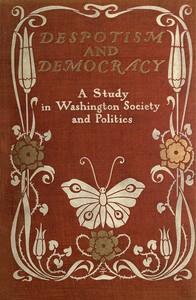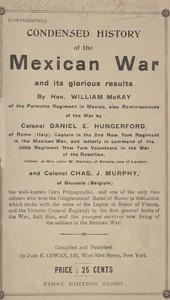|
|
Read this ebook for free! No credit card needed, absolutely nothing to pay.Words: 33837 in 7 pages
This is an ebook sharing website. You can read the uploaded ebooks for free here. No credit cards needed, nothing to pay. If you want to own a digital copy of the ebook, or want to read offline with your favorite ebook-reader, then you can choose to buy and download the ebook. I was thirty years old when I saw her for the first time. We did not speak, we were not introduced, but I knew that I must meet her; I knew that love which had hitherto been gnawing in my imagination and my senses, had found an object. I fell in love at first sight. She did not see me--and I sometimes think she has never seen me since, although we are married and have lived together for fifteen years. Life had prepared me to love. I was born sensitive and passionate, and had acquired more emotion than I was endowed with. I had acquired it partly through ill-health and ignorance as a lad, and partly through an intense sex-imagination to which I habitually and gladly yielded. My boyhood was filled with brooding, warm dreams, and partial experiences, always unsatisfied, and leaving a nature more and more stirred, more and more demanding the great adventure. Then, in youth and early manhood,--as a student, a traveler,--experiences came rich enough in number. The mysterious beauty and terrible attraction that woman has for the adolescent was not even relatively satisfied by my many adventures. Each left me more unsatisfied than before. My hunger for profound relationship grew so strong that all my ideas of beauty, in art, in life and in nature, seemed to be a mere comment, a partial explanation, of that which was a flame in my soul. This explanation, this comment derived from art, while the ultimate result was greater inflammation, so to speak, yet often temporarily soothed. This was especially true of philosophy and reflective poetry. I had no interest in metaphysics as such, but when, in the university, the magnificent generalizations of philosophy first came to me, I thought for a time that I had found rest. Dear Wordsworth! How he cooled my fevered senses and soothed my heart and mind; how he pleasingly introduced into every strong sensation an hygienic element of thought which made the whole into warm reflection rather than disturbing impulse! And dear Philosophy! Who, when taught to see things from the viewpoint of eternity, could be intensely unhappy about his own small Self and its imperfections? In Plato, in Spinoza, in Hegel, Fichte, Nietzsche, Schopenhauer, I felt the individual temperament struggling to free itself, as I had been struggling to free myself, from too great an interest in Self through the contemplation of what seemed to be the eternal and unvarying truth. But then, with returning strength, there came metaphysical skepticism. These great structures of philosophy seemed to me to be houses of cards, toys for imaginative children. And at the same time there burst upon me, with renewed intensity, the world of sensuous art, the direct, disturbing force of Nature, the mysterious appeal of Woman. Philosophy had prepared me for a greater absorption in life than would otherwise have been possible. It helped to make me incapable of what men call practical life, and made me attach values only to significant things. And it lent to my most trivial relations with women the spiritual quality of meaning. Even in the midst of transient sensuality, the eternal flow of Nature, and the inherent significance of all sex life, no matter how impersonal and unindividualized, gave a constant and inevitable spirituality. It was a torturing, promising spirituality. It beckoned to something beyond, dropped strangely disturbing hints of what might be. In the midst of kaleidoscopic women, the Unknown Woman was suggested, foreshadowed. These sensual-poetic experiences were purifiers of the amorous temperament, rendering it at once more passionate, more spiritual and more classic, less mixed with prejudice, with the indecency of ignorance, with unclear as well as unclean theological taboos. I went through every phase of so-called coarse sexual experience, and thereby strengthened and purified my spiritual demand for the Great Adventure. If I had not known women, I should never have known woman; nor could I have loved Her so essentially, so absolutely as I have. With this past behind me--a past full of the pleasures of thought and sense, of the pain of self-doubt, of strenuous struggle for self-realization, for self-understanding--I met Her. In spite of my thirty years, I was as youthful as a faun endowed with a mind and who had recently partly escaped from a theological conception of life. From the Present of Paganism I looked back to the sensual struggles of escape from the secondary results of a defeated theology. And she! How different her nature and her past from mine! She had never struggled with herself. She did not need to, for herself did not disturb her. Imperturbable, she struggled only with her work, with what she was trying to form. She was an artist, and singularly unconscious of herself. Keen to external beauty, she was not interested in the subjective nature of her Soul, or its needs, or how it worked. In fact, her soul seemed to have no needs. I often told her she had no soul, but I was wrong, as we shall see. Along one of the corridors of the world she passed me for a moment, and I knew that I must love her. She was a thing of beauty! It was not merely her lovely skin and hair: she was one of those rich, dark blondes who seem to have absorbed the light and warmth of the sun and to have given it a definite form which introduced the spiritual quality of the brunette--blond in color, brunette in quality. There was nothing bleached about her, nothing faint, nothing iridescent. Her color and quality were that of saturation. It was as if in her skin and hair warmth and color lay suspended, as it lies suspended in dropping summer rain. But I know it was not her skin and hair that I loved. What I loved I feel now, though I did not analyze it then, was the integrity of her physical and nervous nature. She was no self-conscious neurasthenic, as I was! She was cool, unconscious, poised--cold, the ignorant would call her. And the Silence which breathed from her when I first saw her has been hers ever since. Never, even in agony, has she been noisy. Her deep quiet comes as a disturbing thing, to most people, and it has been often the cause of quarreling between us--for I, nervous, with a volcanic past, frequently challenged this quiet soul, challenged it morally and socially, succeeded, to my immense satisfaction, in disturbing it once or twice, but being more often disturbed and irritated myself! I maneuvered a meeting, and many, many followed, and have been following for fifteen years. Our first few meetings showed me that she had no past! All that she could or can remember is that she had worked--worked calmly and quietly, without excitement. Her life as a child was as calm as that of a plant. I have a whole world of violent emotions remembered, stretching along from my third or fourth year. She has no remembered childhood. She grew too beautifully, too gradually, too quietly, to have occur those cataclysmic things which one remembers. And she still grows! Free books android app tbrJar TBR JAR Read Free books online gutenberg More posts by @FreeBooks
: Juan Martín el Empecinado by P Rez Gald S Benito - Martín Juan 1775-1825 Fiction@FreeBooksThu 08 Jun, 2023

: Doctors An Address delivered to the Students of the Medical School of the Middlesex Hospital 1st October 1908 by Kipling Rudyard Lucas Reginald Author Of Introduction Etc Holmes Oliver Wendell Contributor - Physicians@FreeBooksThu 08 Jun, 2023
|
Terms of Use Stock Market News! © gutenberg.org.in2025 All Rights reserved.






